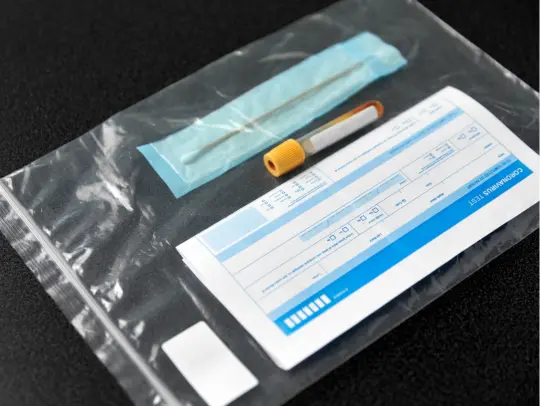
Nurse Practitioner Clarissa - Ozempic and Semaglutides: Understanding GLP-1 Medications for Diabetes and Weight Loss
Ozempic and Semaglutides: Understanding GLP-1 Medications for Diabetes and Weight Loss
Introduction
Ozempic has become a household name in recent years, particularly for its off-label use in weight loss. Originally approved by the FDA in 2017 for adults with type 2 diabetes, this medication has transformed the landscape of metabolic health management. This article explores what Ozempic is, how it works, its benefits, potential side effects, and how it compares to similar medications.
What is Ozempic?
Ozempic (semaglutide) belongs to a class of medications known as GLP-1 receptor agonists. It was initially approved to help lower blood sugar in adults with type 2 diabetes by assisting the pancreas in producing more insulin when blood sugar levels are high. Additionally, Ozempic has been approved to reduce the risk of major cardiovascular events like heart attack and stroke by nearly 20% in adults with type 2 diabetes who have established cardiovascular disease.
While Ozempic itself was never approved specifically for weight loss, the same active ingredient (semaglutide) has been approved for weight management under the brand name Wegovy. However, physicians commonly prescribe Ozempic off-label for weight loss and prediabetes, and many insurance companies now provide coverage for these uses.
How Ozempic Works in Your Body
Ozempic functions by mimicking a naturally occurring hormone called glucagon-like peptide-1 (GLP-1). As GLP-1 levels increase in your body, these molecules signal your brain that you're full, effectively reducing appetite and food intake.
The medication works through several mechanisms:
- It stimulates insulin secretion in a glucose-dependent manner, helping regulate blood sugar levels
- It slows gastric emptying, increasing the time it takes for food to leave your stomach
- It creates a sensation of fullness that reduces appetite and caloric intake
This multi-faceted approach produces effects similar to those seen in bariatric surgery or gastric bypass, but without the invasive procedure.
Weight Loss Results and Timeline
Ozempic has gained significant attention for its weight loss effects. Clinical studies have shown impressive results:
- Most users lose approximately 8% of their body weight over 1-2 years when using just 1mg of semaglutide
- Research indicates people receiving weekly semaglutide injections lost an average of about 15 pounds after three months
- After six months, average weight loss increased to approximately 27 pounds
- This translates to about 5 pounds of weight loss per month on average
Many patients have documented their transformations online, reporting not just physical changes but also improvements in confidence, social engagement, and self-esteem. The drug's ability to curb appetite has allowed many individuals to overcome long-standing struggles with weight management.
How Long Should You Take Ozempic?
There is no predetermined timeframe for discontinuing Ozempic use. As long as you tolerate the medication well and your physician deems it appropriate, you can continue taking it. The medication has been approved for long-term use.
However, some medical professionals suggest that GLP-1 medications like semaglutide should not be considered lifetime treatments unless you have diabetes. If you stop taking Ozempic, you may notice weight returning, as the appetite-suppressing effects diminish when the medication is discontinued.
Regular monitoring through blood work is recommended to ensure the medication continues to be appropriate for your health needs.
Cost Considerations
The financial aspect of Ozempic treatment can be significant. Without insurance coverage, the cost can be substantial:
- The list price for a month's supply of Ozempic ranges from $900 to $1,000
- Wegovy typically costs between $1,200 and $1,400 per month
- Compounded versions of semaglutide may cost approximately four times less than the brand-name product
Novo Nordisk, the manufacturer of Ozempic, states that it supports a healthcare system ensuring patient access and affordability. However, prices vary based on dosage, pharmacy, and whether you choose generic or compounded versions.
When considering compounded semaglutide, caution is advised. Some compounded products may not contain the same active ingredients as FDA-approved medications. There have been concerns about compounding facilities using semaglutide sodium and semaglutide acetate, which have not been proven safe or effective. The FDA has shut down facilities due to safety concerns related to incorrectly compounded products.
Lifestyle Factors for Success
Taking Ozempic alone is not a comprehensive weight loss solution. For optimal results, it should be combined with:
- Regular exercise, particularly high-intensity interval training
- A healthy, balanced diet
- Activities that improve metabolic flexibility and cellular health
The medication reduces food cravings and helps you feel fuller longer, but maintaining a healthy lifestyle remains essential for achieving and maintaining weight loss goals.
Who Should Avoid Ozempic?
Ozempic is not appropriate for everyone. You should not take this medication if:
- You don't have diabetes or are not overweight (some doctors will not prescribe it in these cases)
- You are pregnant, breastfeeding, or planning to become pregnant
- You have a personal or family history of medullary thyroid carcinoma (MTC)
- You have Multiple Endocrine Neoplasia syndrome type 2 (MEN 2)
In rare cases, Ozempic may cause serious side effects, including thyroid C-cell tumors and medullary thyroid carcinoma, a type of cancer affecting the thyroid gland.
Alternative Medications
If Ozempic isn't suitable for you, several alternatives work through similar mechanisms:
For Type 2 Diabetes:
- Rybelsus (oral semaglutide)
- Trulicity (dulaglutide)
- Mounjaro (tirzepatide)
For Weight Loss:
- Wegovy (higher-dose semaglutide)
- Saxenda (liraglutide)
Research indicates that semaglutide (the active ingredient in Ozempic and Wegovy) is generally more effective for weight loss than liraglutide (the active ingredient in Saxenda). It's important to note that these medications should not be taken together, as this can increase the risk of side effects and complications.
Comparing GLP-1 Medications
Ozempic vs. Trulicity
Both are once-weekly injectable GLP-1 medications for type 2 diabetes that help control blood sugar and reduce cardiovascular risks. Studies suggest Ozempic may be slightly more effective at managing blood sugar levels. Additionally, semaglutide has FDA approval for chronic weight management, while dulaglutide (Trulicity) is only approved for treating type 2 diabetes.
Ozempic vs. Mounjaro
While both are classified as incretin mimetics, they work differently:
- Mounjaro (tirzepatide) acts on both GIP and GLP-1 receptors
- Ozempic works only on GLP-1 receptors
Research indicates Mounjaro may be more effective for weight loss and blood sugar control, but Ozempic is generally considered safer for weight management.
Ozempic vs. Rybelsus
Both contain semaglutide but differ in delivery method:
- Rybelsus is a once-daily oral tablet
- Ozempic is a once-weekly injection
They offer similar effectiveness, but Ozempic is available in higher dosages (up to 2mg), potentially providing better A1C reduction in diabetes patients, especially when combined with metformin.
Dietary Recommendations
To minimize side effects like nausea and vomiting while taking Ozempic, consider avoiding:
- Fried or greasy foods (french fries, onion rings, potato chips)
- High-sugar foods and beverages
- Starchy vegetables
- Coffee and alcohol
- Processed carbohydrates
- Large meals
- Dairy products (if experiencing nausea)
Instead, focus on:
- Fruits and vegetables
- High-quality proteins (chicken, turkey, fish, tofu, beans, nuts)
- Taking time to eat slowly
- Staying well-hydrated
- Listening to your body's fullness signals

B12
B12 5000 MCG Daily
Vitamin B12 5000 MCG Daily Liquid DropsRegular Price $29.00
Your Price Buy Now!
Coupon automatically added to your cart
Vitamin B12, is a crucial nutrient that plays multiple vital roles in your body.
Enhanced glucose control: Helps regulate blood sugar levels.
Improved insulin sensitivity: Reduces insulin resistance.
Better weight management: Better hunger regulation and reduced cravings.
Conclusion
Ozempic represents a significant advancement in the treatment of type 2 diabetes and weight management. By understanding how it works, its benefits, limitations, and how to use it effectively alongside lifestyle changes, patients can make informed decisions about whether this medication is right for them.
As with any medication, it's essential to work closely with healthcare providers to monitor progress, manage side effects, and ensure the treatment aligns with your overall health goals. While Ozempic may provide impressive results for many, it works best as part of a comprehensive approach to metabolic health that includes proper nutrition, regular physical activity, and ongoing medical supervision.











































































